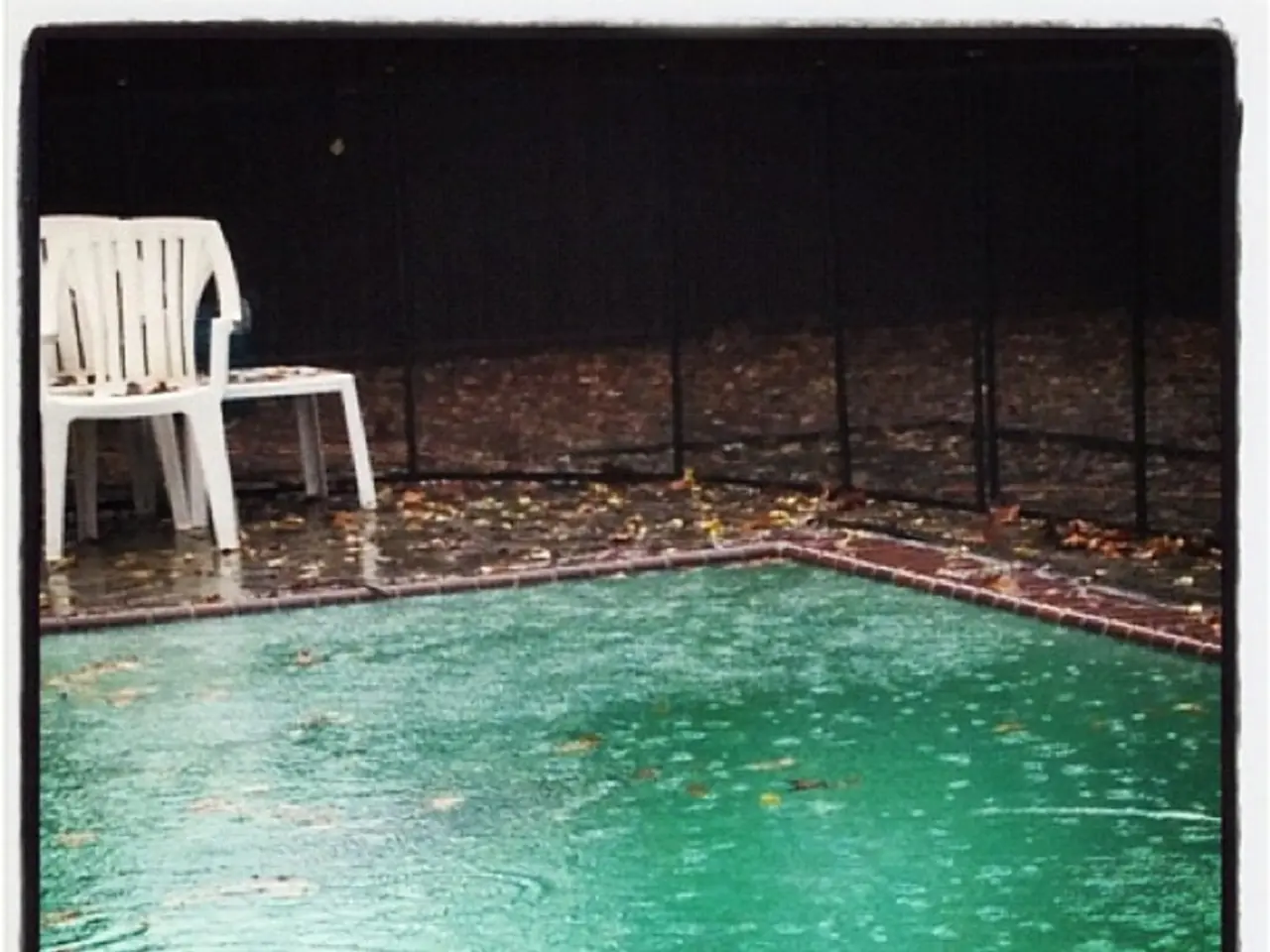Uncovering the Grimy Chemistry behind Chlorine and Pool Odor
In many swimming pools, the overwhelming odor that often greets swimmers is not actually the smell of chlorine. Instead, it's the result of chloramines – chemical compounds that form when chlorine disinfectants react with human sweat and urine.
Chloramines are responsible for the distinct odor that can be found in both indoor and outdoor pools. They are a common cause of eye and skin irritation as well. Dichloramine and trichloramine, two specific types of chloramines, are the ones that directly cause the "pool smell."
The presence of chloramines in a swimming pool is an indication that someone (or multiple people) has urinated in the water. This is particularly common in public facilities such as swimming halls, outdoor public pools, hotels with swimming pools, holiday resorts, and private homes. Public pools and water parks tend to have the highest visitor traffic and thus are common places where urine enters the pool water. Hotels and holiday resorts with pools also contribute, especially as they cater to families and groups. Private pools typically have less frequent use by many different people, so the overall urine input is lower compared to public and commercial facilities.
The odor of chloramines is distinct from the mild bleach-like odor of pool chlorine. The more ammonia present in pool water, the more dichloramine and trichloramine will form, which can raise concerns about urine contamination in pools.
Fortunately, the odor of chloramines can be reduced through proper pool maintenance, including regular testing and adjustment of pool chemicals. Proper maintenance not only improves the swimming experience but also ensures the safety of the swimmers.
It's important to note that monochloramine, a compound formed when pool chlorine reacts with ammonia, is sometimes used to disinfect drinking water and isn't a problem in pools. However, dichloramine and trichloramine, the compounds that directly cause the "pool smell," should be avoided in pool water as they can lead to unpleasant experiences for swimmers.
Pool chlorine, a stronger relative of bleach, is used to disinfect pool water. When it reacts with ammonia, found in sweat and urine, it forms chloramines. The formation of dichloramine and trichloramine in a swimming pool is influenced by the amount of ammonia present in the water.
In conclusion, while chloramines are essential for maintaining clean and safe pool water, their presence can lead to unpleasant smells, eye and skin irritation, and potential health concerns. Proper pool maintenance is key to reducing the formation of chloramines and ensuring a pleasant swimming experience for all.
Read also:
- Peptide YY (PYY): Exploring its Role in Appetite Suppression, Intestinal Health, and Cognitive Links
- Toddler Health: Rotavirus Signs, Origins, and Potential Complications
- Digestive issues and heart discomfort: Root causes and associated health conditions
- House Infernos: Deadly Hazards Surpassing the Flames








